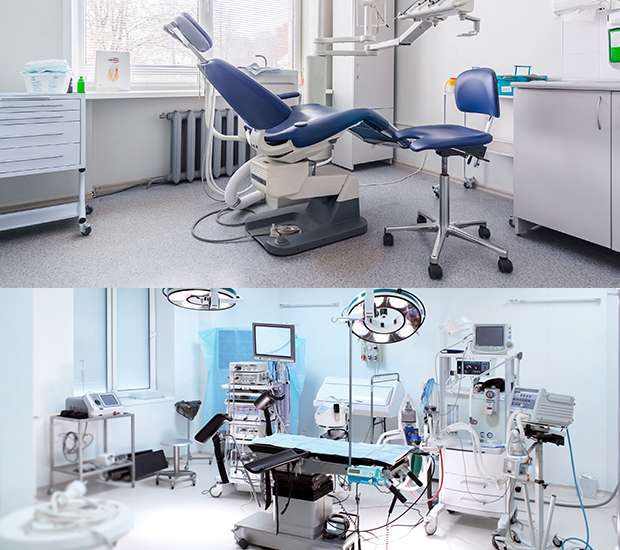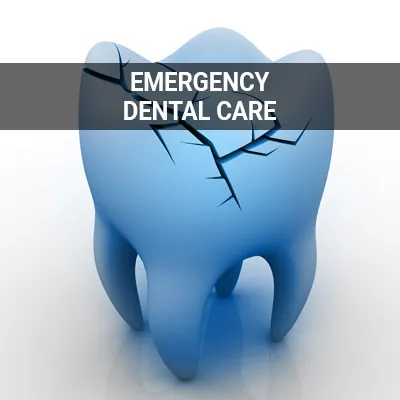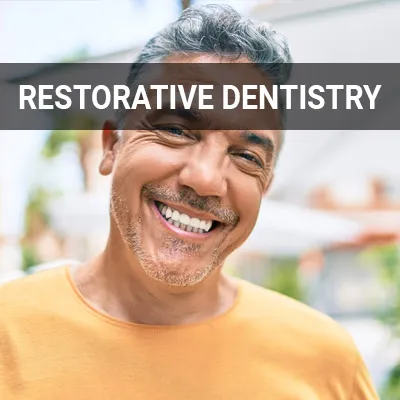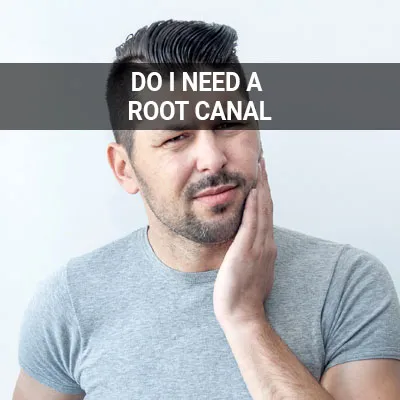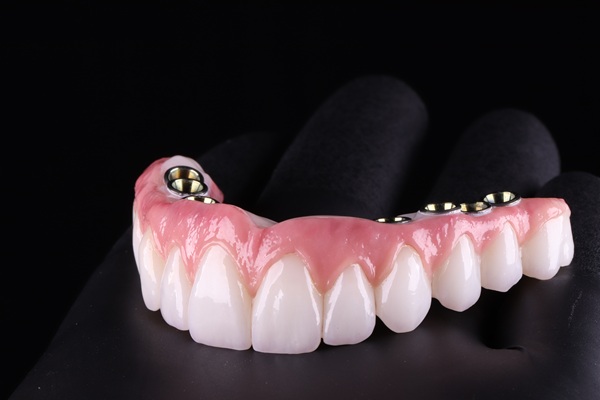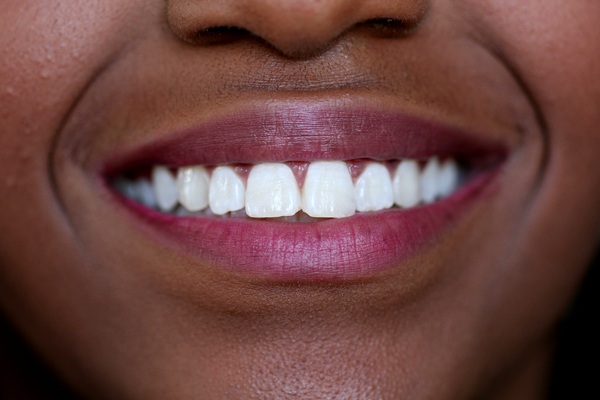Emergency Dentist vs. Emergency Room Dumont, NJ
If you experience a dental emergency, it is important to know an emergency dentist is just a phone call away. Many dentists who provide emergency services make themselves available 24 hours a day, as emergencies can arise at any time. Emergency dentists are professionals who treat walk-in and last-minute patients who require immediate care.
Emergency dental care is available at Dumont Family Dental in Dumont and the surrounding area. In the case of a dental emergency, you should ideally contact our office first. However, there may be times — such as when an issue arises at night, over the weekend, or on a holiday — when your first instinct is to rush to the emergency room. In these situations, carefully consider the severity of the problem and whether it necessitates ER care.
Dental emergencies can arise at any time of day or night, and in a variety of situations. When one does, call Dumont Family Dental at (201) 374-7202 to get the immediate treatment you need.
When to Go Straight to the ER
Dental emergencies may occur after a fall or an accident. Patients should always seek urgent medical care following a serious car accident. According to Harvard Health, any injury that results in a blow to the head can be fatal. Keep in mind that head injuries can be difficult to detect. Patients may feel fine shortly after their accident, but they could have internal bleeding. Some head injuries can also trigger dangerous brain inflammation.
After an accident, patients may experience a rush of adrenaline. This stress hormone keeps one stable during an emergency, but it can also numb pain. Patients may not realize the extent of their injuries until the adrenaline wears off. By then, the medical problem may have worsened. The patient may be severely ill.
Patients should also visit the ER if they have heavy oral bleeding. Seek medical care right away if bleeding does not stop within a few minutes. Patients might also need urgent care if they suffer an injury while taking blood thinners. These prescription drugs can cause uncontrolled bleeding. A medical provider may need to intervene to prevent hemorrhage.
After a dental emergency, patients may try to contact their family dentist. But if it is after-hours, patients might be unable to reach the office team. If you experience severe pain or bleeding, do not wait until the dental office reopens. Instead, visit the ER for an immediate evaluation.
“Should I visit the ER after a dental emergency?”
When To Call a Local Emergency Dentist First
In the majority of oral health emergencies, patients should contact their emergency dentists before heading to the ER. In addition to helping patients manage symptoms, dental professionals can treat underlying conditions and ensure they do not grow worse. For individuals who are not sure what constitutes a "dental emergency" as opposed to a non-urgent yet uncomfortable situation, the ADA provides guidance. The most common situations that characterize a dental emergency are the following:
- Bleeding that will not stop
- Infection accompanied by swelling or pain
- Painful swelling around or in the mouth, with or without infection
- Chipped, broken, or dislocated teeth
- Abscess with localized pain and swelling and no signs of complications
- Loss of a permanent or temporary restoration
Other problems that may necessitate immediate but not emergency care include broken, irritating, or malfunctioning dentures; oral sutures; and bent or broken orthodontic appliances or wires.
“In addition to helping patients manage symptoms, dental professionals can treat underlying conditions and ensure they do not grow worse.”
Understanding Emergency Dental Treatment
During an emergency visit, the dental team may take photos or X-rays. Next, the dentist performs a thorough exam. First, they inspect the patient's teeth and gums. Then the dentist determines what treatment is necessary.
If the patient has severe health problems, the dentist may arrange for an ambulance or send the patient to the ER. Hospital visits are usually reserved for severe injuries like broken bones or widespread infections. In most cases, the dentist can resolve the problem in the office.
The dentist can repair broken teeth or damaged dental appliances. But sometimes, treatment may involve several office visits. For example, if the patient needs a crown or implant, the dentists may order materials from a lab. The dental team might also delay reconstructive work until the patient's mouth has healed from the original injury. Our team can let you know how many procedures to expect.
Dentists can treat oral injuries with stitches or medication. Prescription drugs can also treat or prevent infection. If the patient has an abscessed tooth or gum, they may need a combination of medication and in-office care. Abscesses occur when a pocket of pus develops near the root of the tooth. These bacterial infections can cause debilitating pain. Patients experiencing an abscess may need in-depth care.
“What happens during an emergency dental visit?”
Check out what others are saying about our dental services on Yelp: Emergency Dentist vs. Emergency Room in Dumont, NJ
Oral Infections
If the patient has an abscess, the dentist must remove the source of the infection. Often, the dentist will perform a root canal. During these procedures, the dentist drills into the tooth and drains the pus. The dentist may also need to pull the tooth the clear the infection. Afterward, patients receive antibiotics to help clear up the infection.
Some patients may try to "wait out" their symptoms, but oral infections seldom clear up on their own. Instead, infections usually worsen and spread to other body parts. Untreated infections can result in life-threatening health problems.
Seek treatment right away if you experience any of the following symptoms:
- Chills
- Difficulty swallowing
- Fever
- Foul taste in the mouth
- Inflamed lymph nodes
- Severe oral pain
- Swollen cheeks or jaw
“Untreated infections can result in life-threatening health problems.”
Questions Answered on This Page
Q. When should I call an emergency dentist first?
Q. Should I visit the ER after a dental emergency?
Q. What happens during an emergency dental visit?
Q. How are oral infections treated?
People Also Ask
Q. What steps should happen after chipping a tooth?
Q. Do I need a tooth extraction?
Q. Are pain and tenderness when touching the teeth or chewing a sign of a problem?
Q. What are the symptoms of a cracked tooth?
Frequently Asked Questions
Q. What is a dental emergency?
A. Dental emergencies may involve severe pain, heavy oral bleeding, or tooth damage. Sometimes, patients find it hard to determine whether they are experiencing an emergency. When in doubt, reach out to an emergency dentist or doctor for guidance. Always seek care for sudden or worsening tooth pain.
Q. What should I do if I need emergency dental care?
A. If you experience a dental emergency, call your dentist. The office team can determine whether you need to visit the ER. If the dentist can handle the problem in-office, the team can arrange a same-day appointment.
Q. What should I do if I cannot reach my dentist during a dental emergency?
A. If an emergency happens during evenings, weekends, or holidays, go straight to the ER. Do not wait until your dental office reopens. Delaying emergency dental care may result in life-threatening health complications or permanent tooth damage.
Q. What dental emergencies always require an ER visit?
A. Dental emergencies may occur after a head injury. If you suffer a blow to the head, visit the ER for a full exam. Head injuries may seem minor at first, but they can trigger internal bleeding or brain inflammation. See a doctor for a complete screening. Then contact your emergency dentist after you leave the hospital.
Q. What should I do if I have injured my gums, cheeks, or tongue?
A. First, stop the bleeding immediately. You may do so by applying light pressure to the injury site with a cold compress. Then, contact us right away.
Dental Emergency Terminology
Call Dumont Family Dental in the Event of an Emergency
Dental emergencies can happen at any time. Know you can rely on our team when they do. Call (201) 374-7202 for the immediate care you need when one does.
Helpful Related Links
- American Dental Association (ADA). Glossary of Dental Clinical Terms. 2024
- American Academy of Cosmetic Dentistry® (AACD). Home Page. 2024
- WebMD. WebMD’s Oral Care Guide. 2024
About our business, and website security
- Dumont Family Dental was established in 1973.
- We accept the following payment methods: American Express, Cash, Check, Discover, MasterCard, and Visa
- We serve patients from the following counties: Bergen County
- We serve patients from the following cities: Dumont, New Milford, Bergenfield, Tenafly, Cresskill, Demarest, Haworth, Hackensack, Englewood, Teaneck, River Edge, and Paramus
- National Provider Identifier Database (1689734162). View NPI Registry Information
- Norton Safe Web. View Details
- Trend Micro Site Safety Center. View Details
Back to top of Emergency Dentist vs. Emergency Room
